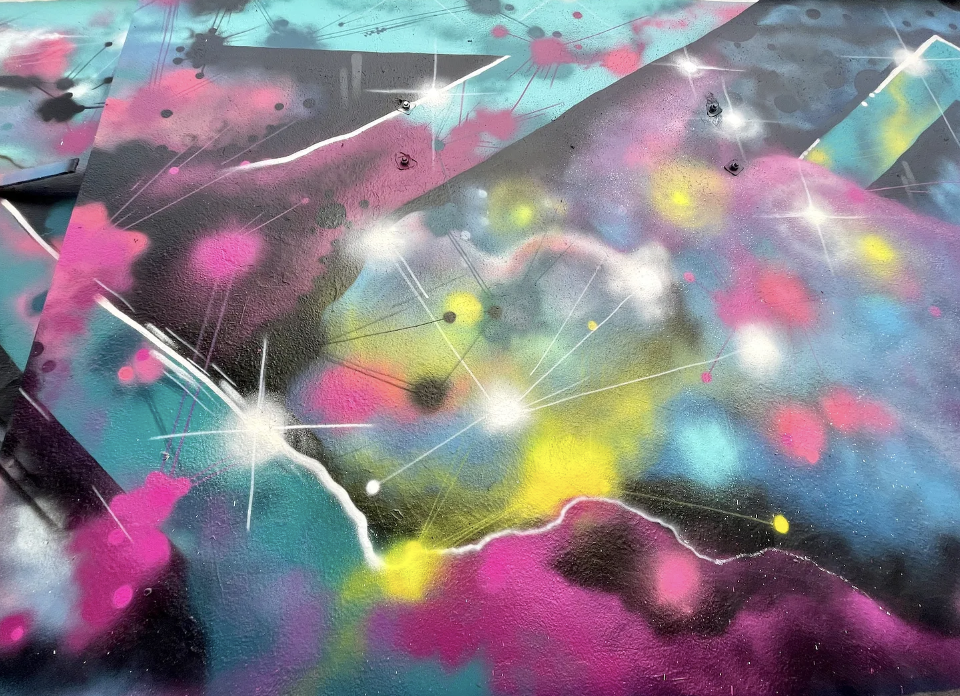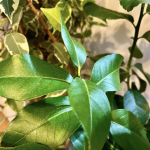On getting it wrong
Good evening! I hope this post finds you safe and well. It’s a cold and gloomy weekend in Bristol, and it’s raining, so I am wrapping up in blankets and hiding in the comfort of our home. Since various holidays are approaching, I am spending time tidying up the home and putting away my paperwork after completed counselling studies. It’s time to organise and clean up my living spaces, so it is also the time to check in with all our houseplants. Each time I finish a major course, I adopt a tree. Usually, it is an olive tree to symbolise wisdom and peace, but this year, I decided to get a lemon tree. Simply because 2022 was incredibly challenging and sour. As they say: ”When life gives you lemons, make a lemonade”. I hope to make some next summer!
I like to talk quietly to my plants. So these days, I ask the lemon tree to settle into our home, ask her about her needs and still think about the best spot for her to thrive. There’s still some confusion about the impact of talking or playing music to plants, and soon enough, more and more plants will be able to communicate their needs with us thanks to innovative ideas like this one here. Still, I like to have a relational approach to pretty much everything in my surroundings, especially Nature. I have cultivated this approach since reading the magnificent “Braiding Sweetgrass: Indigenous Wisdom, Scientific Knowledge and the Teachings of Plants” by Robin Wall Kimerer. A chapter in her book explains that in First Nations languages, Nature has a status similar to us – so a bay may be angry or calm, for example, just like we may have a bad or a good day. We are one of many living creatures on this planet. In many cultures, elements of Nature have their living status, too (fire, water, air, etc.). Relating to the natural world from a place of humility, diversity, and unity means we can feel a sense of belonging to a broader community of living beings. In fact, it is exactly that sense of connection with Nature that can be ever so healing.
It is exactly that sense of belonging and a wider network of connections that I find healing in the act of blogging. I know, I know, today, blogging was somewhat highjacked by the mainstream media and the need to make a lot of money on clicks, ads, and engagement. And so when we learn to blog for our businesses or brands, we are advised to use keywords for SEO (Search Engine Optimisation) to achieve better search results. We are advised to write perfectly structured posts – not too long, not too short, so our readers don’t get too tired and lose attention too fast. We are advised to create quality content to excite, engage, and keep the readers on our website. Thus, we may be slowly forgetting a more focused reading with sustained attention. I will admit it: I sometimes skip paragraphs and just read the top key points when in a hurry. And by now, our industry language has also become lazy: we call a blog post a “blog”, which is confusing – a blog is supposed to refer to the entire blog site with individual posts. (Grrr…I feel a little bit too old-fashioned here)
In my opinion, when we craft perfectly clickable, easy-to-read posts that sell our products, we completely miss the heart of blogging: human authenticity, connection and collaboration. Personally, I think those three aspects are critical to powerful, sustainable blogging, which leads to long-term engagement and long-lasting relationships with our audiences.
Blogging is not perfect; it is not supposed to be. But it is supposed to be authentic, honest, and true to who we are (as individuals, organisations or brands). It is supposed to reflect our passions, needs, interests, habits, and, most importantly (especially for corporate blogging), our values. Authenticity leads to long-term trust, which is the most crucial return on our investment in blogging.
A major aspect of that trust-building process is doing our honest best self while remaining imperfectly human – sometimes getting it wrong.
In fact, just last week, I made two mistakes in my article. I received more feedback on my post and updated it in places where I made mistakes. I was so grateful for the learning, too. I love it when people comment on my posts (here, on the platform or via multiple private channels), as this is how I learn and grow and improve my blogging skills. The first published copy of last week’s article contained two mistakes: I stated that the term “spirit animal’ is reserved for First Peoples of the USA and that the spirit animal journeying needs to be done with a qualified professional. I was wrong. I apologise for those mistakes, and I have corrected both now. Anyone can do journeying in the comfort of their home as long as they are okay to return from their spiritual explorations. The term “spirit animal” exists in many cultures. APA reserves it for any spiritual practice vs. referring to simply your favourite animal.
We do need to make corrections to our posts and use hyperlinks when possible to avoid spreading misinformation, but it is also perfectly human to get something wrong. Isn’t it how we learn? I posted last week that sharing online is my form of journalling, but it is also my form of learning from my friends and my online readers. It’s another way for me to practice my personal growth. I put my ideas out there with the intent to be corrected, pointed to new sources, directed and inspired. In the world of algorithms, echo chambers and perfect content that sells, we miss that significant part of human connection: not always being right, accepting other people’s views and adjusting ours – growing collectively.
I often hear my clients worry about their first posts: what if I get something wrong? They say this with honest fear and vulnerability. But what if getting it wrong and admitting it openly leads to deeper trust than being perfect? In fact, at Voxel Hub, we will be starting a blogging experiment soon where an AI tool will perfectly craft a series of our posts to highlight the feeling of reading something well…perfect.

What if our passion, with a little bit of help from our readers, turns into something magnificent? That is exactly what happened when Andy Weir started writing “The Martian” in a blog format. The blog received feedback from NASA scientists, and by the time the book was published, it was a fantastic collective project. Watching Matt Damon in the movie always makes me think about the collective power of blogging, bringing humanity together in co-creation and collaboration.
In 2022, many bloggers don’t realise that the Internet was founded on those principles of collaboration. The very reason why Tim-Berners Lee developed his initial ideas around a united online way of exchanging scientific findings at CERN was to simplify the collaboration between incredible scientists. Many Internet users do not know this, nor the history of blogging and how it has grown, shifted, changed and remains open to many ways of doing it. We all have brilliant ideas to share, so when we come together in online collaborations – whether it’s text, imagery, video or mixed media – we can transcend our biases and limitations and move forward. Individually and collectively.
(Reflection)
Today, I would like to invite you to be a little bit playful and imagine that you are to become a blogger. Imagine that what you know, the hobbies you love, and the inspirations you treasure are worth sharing with a broader audience to connect, grow and learn more. I invite you to dream of becoming a blogger for a while, just as an experiment.
What do you know that people in your community would benefit from knowing? What do you believe is helpful for the improved quality of life and well-being of anyone who may wish to learn from you? Imagine sitting at a campfire and being asked for informal yet professional advice: what do you have to offer? How could you share this wisdom on your blog? Leave your inner critic behind and allow yourself to be the expert of your passions – because you are, and it’s possible that others would, in fact, benefit from your knowledge too.
What do you feel passionate about? If you could spend all your time doing one or a few things, what would it be? Where is your heart? What makes you happy, excited, and curious? What inspires you? What impressions and joys could you share on your blog?
What would you like to learn, create, explore, and investigate? What new avenues could you take and document in your new blog?
What format feels right for you: short text (micro-blogging like Mastodon), longer text (WordPress), images (Instagram), videos (YouTube) or mixed media like here on Substack? You could use any of those leading platforms and focus on one type of content, or you could play and experiment.
How often would you post? It’s your choice too. However, your readers will probably get used to some form of regularity, so decide if you can do it daily, weekly, monthly, quarterly…
What would your blogging voice sound like? In digital marketing, “brand tonality” is a bit of a buzzword; I prefer to think about our authentic voice (even as brands), so think about your various inner parts – different ways you present yourself in different environments (it’s normal to switch our tone to the context a bit) and chose one: informal, formal, professional, teacher-like, soft, compassionate, challenging, funny, factual etc. What would your blog content sound like?
What would your first blog post contain? What would you blog about in the first few posts? What would you like to see on your blog when you get into the rhythm of posting? Who would you like to talk to and collaborate with? What would be the value of reading your blog to them? If it’s your friends and family, I am sure whatever you post will be lovely, right?
Would you prefer to have a private, public or anonymous blog? What would each option mean to you: your sense of safety, freedom to be creative and authentic, and your future connections and collaborations?
Dreaming about something is free, and it helps up open up to the possibility of doing something new. I believe and know that meaningful connections can be facilitated through authentic blogging. Trust me, this form of communication can be healing and maybe even life-changing.
(Off to water my lemon tree. I wish you all a good week ahead).
This post was originally posted on Substack in our Syl’s Liberation Psychologies Newsletter.

